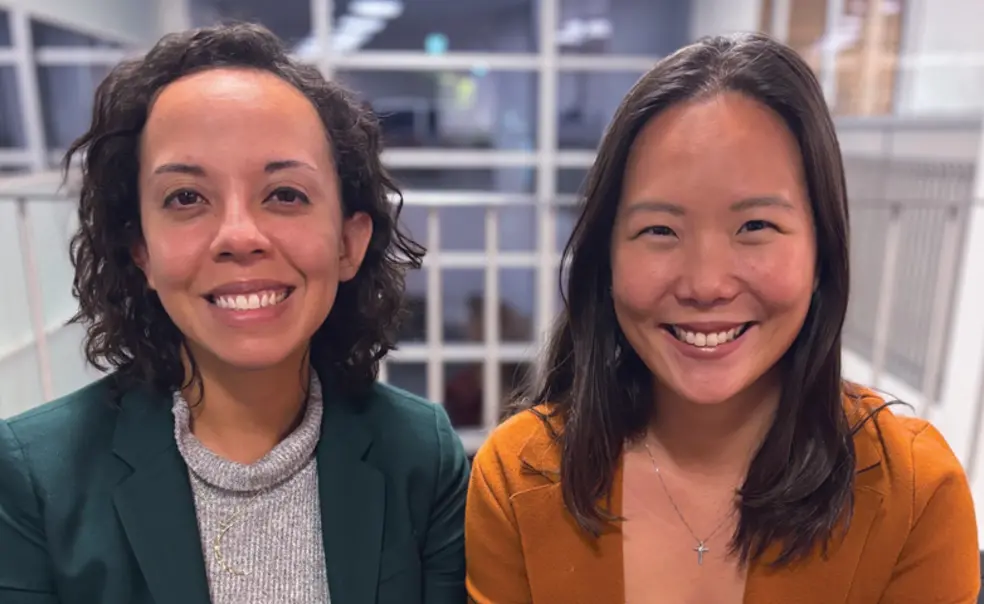Psychology Professor and Alum Build Mentoring, Networking Program For Women Leaders
Psychologist Rebecca Carey and Karen Tay ’10 create program to address workplace challenges
Karen Tay ’10 went from Princeton to working for the government of Singapore to Silicon Valley startups. It was there that she noticed something about her female colleagues who had achieved high levels of leadership and success in the workplace: They were struggling.
Some were dealing with workplace troubles, others with divorces or managing children who had special needs. “The entire system is not really set up for women,” she says. “They’re running twice as hard, jumping twice as high, and still being told they’re not good enough in a very visceral way.”
Tay wanted to create a structure where women could help each other through difficult situations in a peer support model. But first she needed to team up with a researcher to understand the scope of the problem.
Tay and collaborator Cyrena Chih '05 connected with Princeton psychology professor Rebecca Carey, who runs the Adversity and Relationships in Context Lab. Together they decided to research the best ways to support high-achieving women as part of a pilot program. They focused on workplace challenges that left women discriminated against, fearing for their job security, or stuck in roles with no good options.
Carey was interested in the effect of peer mentors on women. “Sometimes the people in our lives are actually the thing that makes the challenges even harder,” she says. “But I think it’s really important to know when people can be a positive support factor and take them away from the more draining types of relationships.”
They found that when navigating workplace challenges, the 20 women in the pilot shared three core experiences: feeling isolated, stuck, overwhelmed, and feeling a loss of dignity, and a loss of identity. Women in the pilot reported that they lacked the knowledge and preparation to figure out how to get help from human resources or lawyers, and they were hesitant to speak about their challenges because their friends and family weren’t able to understand what they were going through.
For eight weeks, the women connected with nine so-called allies: women outside their professional networks who could help guide them. These allies had gone through similar situations and were trained to help. For example, one woman connected with an ally to work through a complicated situation with her boss who had arranged a meeting with HR, told her she was underperforming, and pressured her to leave. It caused her so much stress she couldn’t sleep and had a fear of going to work. With an ally at her side, she gained skills to manage the tricky situation.
In the small study sample, there were statistically significant findings: confidence rose by 60%, motivation rose by 43%, and productivity rose by 50%. Together, the trio plus intern Yuka Childers '26 published a white paper where they laid out their findings.
In addition to getting support, the women said they simply felt better after the program: They were eating and sleeping better, which is evidence of better mental health.
Tay has now formed a startup company called Inherent Journey, which seeks to support women through times of transition with workshops, allies, and other structural means. In 2025, the Princeton ARC Lab and Inherent Journey will continue to offer programs that support women and people of color through workplace challenges. They encourage those interetsed in learning more to fill out an interest form at www.inherentjourney.org.
Helping women in moments of acute crisis makes it possible for them to bounce back from adversity, Tay says. “The number one thing that women realize when they come in is that they are really not alone,” she says. “That can be so liberating for them.”












No responses yet